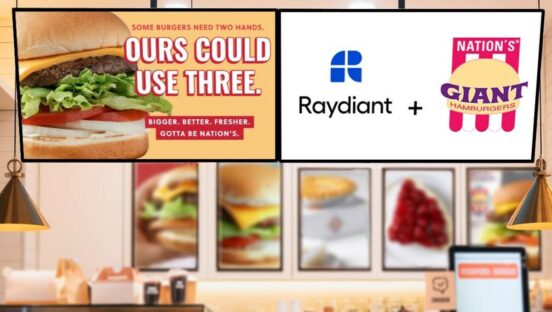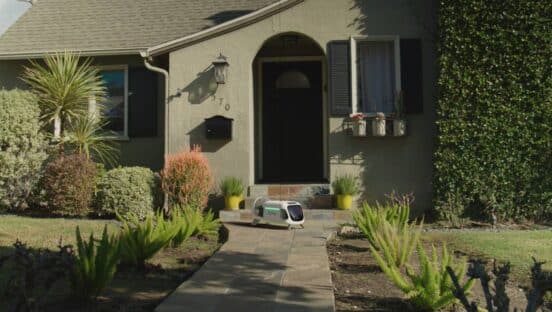With an increasing number of moving parts in a restaurant, more operators are abandoning back-office servers for Internet- and mobile-based solutions to streamline everything from compliance to point of sale.
Colorado-based Modern Market wanted to use cloud-based computing since opening in 2009, says CEO Anthony Pigliacampo.
“We chased all the options available—and there were some neat solutions—and they’re made by all different vendors who say they can connect systems together, but in the end it becomes very difficult to execute that,” he says. “But we also saw the promise of using all the data we have if we could get it formatted for the right people.”
The chain opted to build its own platform, which was feasible given its relatively small size (17 locations) and the basic scope of the technology it wanted to develop. It hired a full-time applications architect to build on and customize additional layers to suit stores’ needs.
Last year, Modern Market switched to a cloud-based point-of-sale (POS) system with an application-programming interface (API) that can communicate with its proprietary platform.
“Every POS has a dashboard where the manager can glance at the screen to see sales in real time. That’s great, but there’s other data we like to send, too, regarding ticket times and how fast stations are building salads and sandwiches, for example,” Pigliacampo says. “It’s neat to see where you stand across the company as a whole in real time. Managers can see in real time when they’re winning the race for ticket times.”
For any chain looking to integrate a cloud-based POS solution into an existing platform, Chris Poelma, president and general manager of small business at hardware and software firm NCR Corporation, says it helps to think beyond the sales transaction.
“Consider whether or not the platform you’re planning to invest in can effectively help you manage other components of your business,” Poelma says. For example, cloud-based POS technology can help create targeted campaigns to engage customers via email, mobile, or social media.
Adopting a cloud-based POS system can be particularly useful for franchise owners, as Denver-based Smiling Moose Rocky Mountain Deli has found. As part of a larger rebranding effort with a goal of opening 100 delis by 2020, the 18-location chain migrated to a fully integrated cloud-based POS system at the start of 2015.
Chief operating officer Kevin Brutsch says Smiling Moose is now able to support franchisees’ needs more quickly—be they adding promotional buttons from the corporate office or monitoring labor and real-time sales.
The first location to go live with the new Brink system was in Williston, North Dakota. Brutsch says that at the time, the store didn’t have a general manager, so he would monitor the store from his own laptop. The real-time labor data allowed him to make an impact right away—whether calling someone in because a deli was understaffed or sending in a manager.
Brutsch says the chain has had no issues with Internet outages since the migration; most of the challenges have been administrative, such as birthday rewards not showing up or online orders not automatically printing. He says Brink’s recent acquisition by PAR Technology has already improved its ability to troubleshoot problems.
Nevertheless, Poelma says Internet outages remain the biggest challenge for quick-serve restaurants working with any type of technology because “they don’t have time to deal with connectivity hiccups,” he says. But that’s improving as advanced POS platforms are beginning to come outfitted with offline capabilities, enabling restaurants to continue taking and ringing up orders without missing an order.
Poelma says he’d like to see more chains take advantage of mobile payments and data analytics. Mobile payments adoption has been relatively slow in the U.S., even though they offer diners a convenient way to pay without using their wallets, he says. Analytics, meanwhile, promise to help quick-serve restaurants make sense of all the data and make more informed decisions.
Vladik Rikhter, cofounder and CEO of San Francisco–based Zenput, says he’d like to see more chains abandon weekly stacks of spreadsheets for reporting daily audits like food safety and bathroom cleanliness.
Zenput makes a smartphone and tablet app that assigns and tracks such store-level data mainly using smartphone photos or videos, which Rikhter jokes makes it a bit like a corporate Instagram.
“If your district manager walks into a store and sees the bathroom is dirty, it will create a task for the store manager using before and after pictures,” he says. “We’ll also pull the data out and tell you, based on what district managers see in the field, if you have problem areas as they’re trending and over time.”
Chains find that other processes can be improved, too, if they’re open to a better solution than what they’ve always done. Lexington, Kentucky–based Italian chain Fazoli’s didn’t initially tap Zenput to improve drive-thru audits, which it had been separately tracking unsystematically via district managers’ phone videos.
Once the company installed the drive-thru videos to Zenput, it started using them as training tools and totally revamped the drive-thru experience, Rikhter says.
Indeed, while any new technology comes with a learning curve and no shortage of snags, it can improve efficiency in the costly and time-consuming business of making great food, Pigliacampo says. “What we do is complicated,” he says. “Technology enables us to keep our finger on the pulse.”












